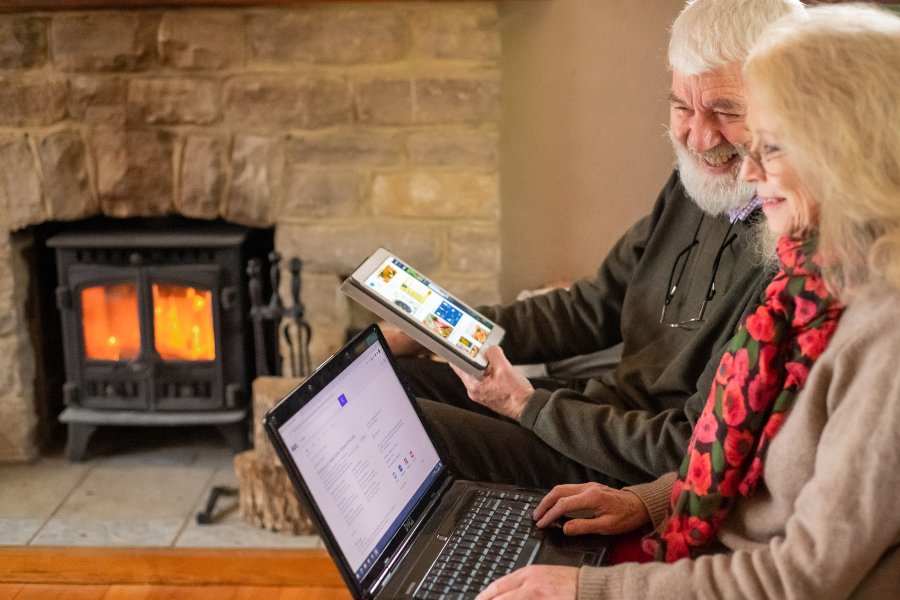NHS app to help cut waiting lists by allowing patients to choose where they receive care
Patients will be able to choose where they receive NHS care using the NHS app or website under new plans to help cut waiting lists.
A letter issued by the NHS to local areas will require patients to be offered a choice when clinically appropriate.
After speaking with their GP, patients will be able to view information for a minimum of five providers where possible, with information about waiting times, distance to travel, and quality to help them make their choice. They will then be able to choose where they go for treatment using the NHS app or website, based on their circumstances.
Health and Social Care Secretary Steve Barclay said: “Every patient should be able to easily choose where they go to receive treatment and today’s package will put that power in their hands.
“Millions of people downloaded the NHS App during the pandemic. Increasing use of this fantastic resource will enable them to exercise more choice and get access to essential information about the options for their care including journey time, length of wait and quality of service – all at the swipe of a smartphone screen.
“This will not only give patients more control over their own care but could also wipe months off their wait by finding a hospital or clinic with a shorter waiting list.
“Cutting waiting times is one of the government top 5 priorities and we are already making progress to tackle the backlog and are rolling out community diagnostic centres and surgical hubs to boost the numbers of tests, scans and operations.”
Currently just one in 10 patients exercise their right to choose, but research shows that giving patients choice can cut up to three months off their waiting time by selecting a different hospital in the same region, according to the NHS.
Prime Minister Rishi Sunak commented: “Empowering patients to choose where they receive treatment will help cut waiting lists, one of my 5 key priorities.
“Currently, just one in 10 patients make a choice about where they receive care. We want to change that by helping the NHS to offer patients a real choice while also giving patients the information they need to decide.
“Our aim is to create an NHS built around patients, where everyone has more control over the care they receive, wherever they live or whatever their health needs are.”
During the pandemic, millions of people downloaded the NHS App to access services including the NHS COVID Pass, which will expand the way that the NHS App and website are used to improve how patients choose to receive care.
Newly updated software to IT systems will also make the process easier for GPs when referring patients for treatment.
The NHS App, which serves as a digital front door to the NHS, has over 32 million sign-ups and receives around 75 million visits a month. Patients are already able to book and manage their GP appointments, order repeat prescriptions, and manage their hospital referrals through the app.
A new public awareness campaign will also encourage patients to exercise their right to choose and guidance has been provided to GP practices to support them to offer choice, with training available on using IT systems to make referrals.
Amanda Pritchard, NHS Chief Executive, added: “By giving patients greater choice and more information about their care through the convenience of the NHS app, we can change the way people access treatment options while also building on the fantastic work already being done by NHS staff across the country in bringing down the longest waits for care.
“Despite significant pressure, the NHS reduced 18-month waits for care by more than 90% by April and alongside existing tools like elective hubs, surgical robots and ‘prehab’ checks, this is another way that we are continuing to embrace the latest innovations and tech for the benefit of patients.”
Patients already on waiting lists will also benefit as, from October, those who have waited more than 40 weeks for an appointment but have not yet been given a treatment date, will be asked whether they want to switch hospitals, including one with a shorter wait, if possible and clinically appropriate. This builds on existing NHS ‘mutual aid’ arrangements between hospital trusts.
As the NHS continues to make progress in tackling the backlog, this threshold could be reduced over time, based on clinical advice, towards 18 weeks as fast as possible.
Looking at new ways to reduce A&E waiting times, the Scottish Government recently announced more than £50 million in a national improvement programme.


